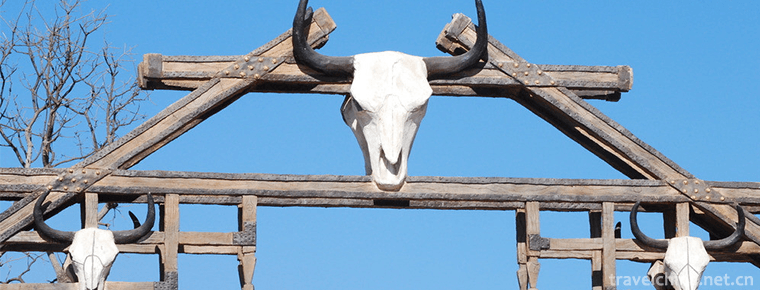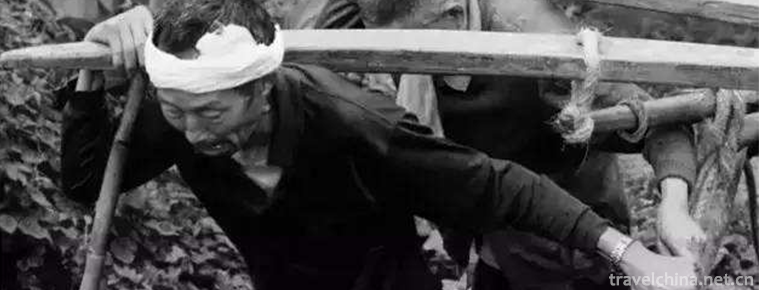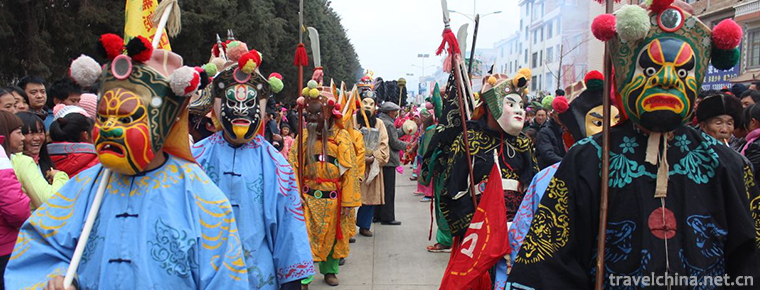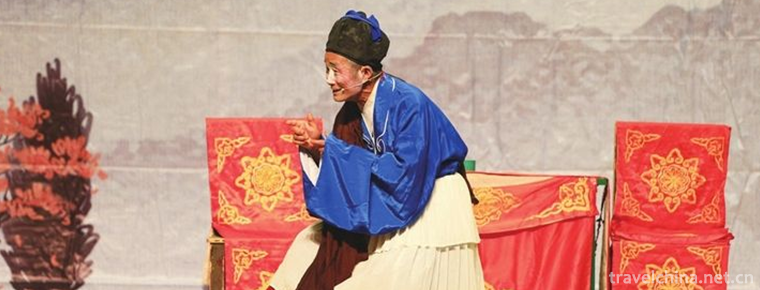The story of Xie Jin
The story of Xie Jin
Xie Jin (Dec. 6, 1369 - Feb. 22, 1415), a literary Minister of Ming Dynasty, was born in Jishui, Ji'an Prefecture, Jiangxi Province.
In Hongwu 21 years (1388), he served as an officer to the Cabinet Prime Minister and a Bachelor of Youchunfang University. He participated in important affairs. Jie Jin was feared for his talent and learning, and was repeatedly deposed. He was finally sent to prison with "no courtesy". In the winter of 1415, Yongle was buried in a snowdrift and frozen to death. He died 47 years ago. In the first year of Chenghua (1465), he presented him to the official of the imperial court, Ji Wenyi.
Xie Jin is a brilliant scholar of the Ming Dynasty. He wrote elegant and wonderful articles, rich poems, exquisite calligraphy, excellent lines and grass. He is especially good at wild grass. He is known as the three great scholar of the Ming Dynasty together with Xu Wei and Yang Shen. He wrote the Collection of Understanding Scholars, Tianhuang Yuhuang, etc. The President of the Ming Dynasty, Taizu Shilu, Ancient and Modern Women's Biographies, presided over the compilation of Yongle of Music, and the ink scroll of Self-written Poetry. 》 "Book of Tang Poetry", "Song Zhao Hengdian Trial Lost Stories" and so on.
Paul Mauriat's History
On November 7, 1369, the second year of Hongwu, Xie Jin was born in Jianhu, Jishui County, Ji'an Prefecture, Jiangxi Province. Legend has it that when he was a child, he was extremely intelligent and known as a "prodigy". When he was five years old, his father taught him poetry and prose, and he could remember them once; when he was seven, he could write articles; when he was ten, he recited thousands of words a day for a lifetime; when he was twelve, he read the Four Books and the Five Classics, which ran through their righteousness .
Hongwu 20 years (1387), Xie Jin participated in Jiangxi Rural Examination, ranked first (Xie Yuan).
Hongwu 21 years (1388), Jiejinzhong Wuchenke Jinshi 3a 10th, Tingshi and brother Jielun, brother-in-law Jinhua joined the ranks of scholar-in-law, awarded the common good scholar, read the Secretary in middle school. In the same year, the official went to Hanlin bachelor's degree. Zhu Yuanzhang attached great importance to him and ordered him to stay with him. One day, Zhu Yuanzhang said to Xie Ji in the Western Chamber of Dachao, "You and I are princes and ministers morally, but kindly like father and son. You should know everything." The next day, Xie Jin submitted tens of thousands of words, advocating that the law should be concise, and praise good governance . Zhu Yuanzhang praised his talent after reading it. Shortly afterwards, Xie Jin again presented his remarks on the Ten Strategies for Peace . When Jie Jin first became an official, he once accused his officers of dereliction of duty. Shangshu Shen Qian was very angry about this and made a false accusation. Zhu Yuanzhang, Taizu of the Ming Dynasty, blamed Jie Jin for his "self-anger" and dismissed him as the supervisory governor of Jiangxi Road. Korea's Gong Li Shanchang was executed by Zhu Yuanzhang for his crimes, and the Kingdom of Ji Dai Lang used Shangshu to defend Li Shanchang. He also acted on behalf of the Royal Shi Xia Chang's Cultural Revolution Shu's On Yuan Tai's Craftiness. He experienced the crimes of Chen Yu-shi Yuan Tai's contempt for the imperial platform, corruption and perverting the law, and framing loyalty and goodness. Yuan Tai was punished and hated it. Zhu Yuanzhang believed that Jieji was still lacking in self-cultivation. He had to cultivate himself and think about it behind closed doors, otherwise he would be the target of attack by all the ministers.
In the twenty-fourth year of Hongwu (1391), Zhu Yuanzhang summoned his father to Beijing and said directly to him, "If Da Ji is late, if Er Zi returns, Yiling Jin will benefit. In the next ten years, it will not be too late." Xie Jin had to return to Jishui with his father. In his hometown for eight years, he wrote behind closed doors, revised the History of the Yuan Dynasty, supplemented the Book of Song and deleted the Book of Rites.
In the 31st year of Hongwu (1398), Zhu Yuanzhang died of illness and went to Beijing to mourn. When Emperor Huidi of the Ming Dynasty, Zhu Yunwei, came to court, Yuan Tai took the opportunity to preach, attacking Jie Yi's "imperial edict, and mother's funeral was not buried, father's ninety years, should not give up." Zhu Yunjie listened to his advice and dismissed him as a guardian of Hezhou (now near Lanzhou, Gansu Province).
In the fourth year of Jianwen (1402), Dong Lun, then the courtesy waiter, was trusted by Zhu Yunwei and said a lot of good words for Jiewei in front of Zhu Yunwei. In this way, Jiewei was recalled to Beijing Normal University for reinstatement and was appointed to Hanlin. November served as Cabinet Prime Minister and Assistant.
In the first year of Yongle (1403), Zhu Di, the ancestor of Ming Chengzu, ascended to the throne and Xie Jin was promoted to serve in Hanlin. Later, Chengzu set up Wenyuan Cabinet, Jieji and Huanghuai, Yang Shiqi, Hu Guang, Jin Youzi, Yang Rong, Hu Li and other Jinwenyuan Cabinet participated in the airplane service, from which the Ming Cabinet system began. Soon after, he moved to Hanlin to attend bachelor's degree. He was instructed by the president to "Taizu Shilu" and "LieNu Zhuan". The book was written and Zhu Di rewarded silver coins. Later, he edited Yongle Dadian.
In the second year of Yongle (1404), Xie Jin was promoted to Bachelor of Hanlin and Bachelor of Youchunfang University, assisted by the Cabinet Chief Executive, which was the most proud time of his official career. Zhu Di once summoned Ji Jin and others to say, "You seven get along day and night, and I often praise your diligence and prudence in the palace. It's always easy to be cautious at first, but it's hard to keep it going in the end. I hope you can work together." So each gave five official clothes and so on. At the beginning of spring, Zhu Di gave him the same status as Shangshu. Since then, the cabinet's remarks have been adopted modestly by Zhu Di.
In the three years of Yongle (1405), Zhu Ding summoned Jin to the palace to discuss the establishment of the prince. At that time, Chengzu of Ming Dynasty meant to establish Zhu Gaoxu, the second son, as the prince, but Xie Jin still said frankly, "For the long time, this has been the case since ancient times." The emperor's prince, benevolent and filial piety, belongs to the whole world. If he abandons his position, disputes will arise. If we set a precedent, we will be afraid that there will be peace in the future. Zhu Di was unhappy after listening and hesitated to discuss it. In order to persuade Zhu Di, Xie Jin only said one sentence: "Good Saint Sun (Zhu Zhanji)!" They looked at each other and laughed. Finally, Zhu Ding agreed to establish Zhu Gaozhi, the eldest son, as prince, and Zhu Gaoxu, the second son, as king of the Han Dynasty. He ordered Jie Wei to write an imperial edict for the establishment of a depository to inform the world. From then on, Zhu Gaoxu deeply hated Jie Yi . At that time, Zhu Gaochi led the army of Ming Dynasty to fight against Annan and dissuaded Zhu Di. Subsequently, the campaign succeeded and counties were set up. Although the prince was standing at that time, Zhu Gaochi's performance did not satisfy Zhu Di. At this time, Zhu Gaoyu was more favored, and his rank of etiquette exceeded the standard of his immediate relatives. Jie Fengshu dissuaded Zhu Di and said, "It's no use arguing." Zhu Di immediately became angry, saying that Jie Jing was divorcing flesh and blood, and he had a lot of opinions about Jie Jing.
Four years of Yongle (1406), Zhu Di gave Huang Huai and other people two tastes of yarn, but did not give the solution. Qi Guogong Qiufu "delayed the transmission of court secrets", while Zhu Gaoxu "banned Chinese" for five years, which was also falsely accused of "unfair marking of examination papers" and demoted to be the counselor of Guangxi's Department of Political Affairs. Before his departure, Li Zhigang, Minister of Rites, had a long-standing feud with Jie Jin and falsely accused him of misdemeanor, so he demoted Jiao Zhi (now Vietnam) and ordered him to supervise and reward the state.
Yongle eight years (1410 years), Xie Fan entered Beijing to play the story, is not returned when Zhu Di's Northern Expedition, so he had to pay tribute to Prince Zhu Gao-chi and return. So Zhu Gaoyu took the opportunity to come in and say, "Waiting for the prince and going out, privately revealing the prince, going home, no courtesy!" Zhu Di was so angry that he was ordered to prison for the crime of "nobody's courtesy". At that time, Xie Jin had gone to Guangdong with the King of Review. Along the way, they saw the serious drought on both sides of the Ganjiang River and drew water to irrigate the fields. As soon as the play arrived, Zhu Di became more angry and ordered Jinyiwei to arrest and release him from prison. Tang Zong, the emperor of Dali Temple, experienced Gao Deju, Zhongyun Li Guan, praised Wang Ruyu, compiled by Hanlin Academy Zhu Wan, reviewed Jiang Ji, Pan Ji, Xiao Yingao and imperial governor Shi Li Zhigang. Among them, Gao Dezheng, Wang Ruyu, Li Guan, Zhu Wan and Xiao Yingao died of illness in prison.
Yongle thirteen years (1415), Jinyiwei commanded his prisoners on the chronicle. Zhu Ding saw Xie Jin's name and asked, "Is Ji still there?" Ji Gang insisted that Jie Ji was drunk with wine and then dragged to the snow to bury it. Jie Ji died immediately on the thirteenth day of the first lunar month, when Jie Ji was only forty-seven years old. After Jie Jin died, his family property was stolen and his wife and children were exiled to Liaodong.
In August of the first year of orthodoxy (1436), Xia Zhao-amnesty of Zhu Qi town of Ming Ying Zong returned the family property it had copied. In the first year of Chenghua (1465), Zhu Jianshen, the emperor of Ming Xianzong, issued a decree to solve the problem and restore his official position. He presented it to a doctor of the imperial court, Zhu Wenyi. After Xie Ji's death, Zhu Gaoyu's rebellion was annihilated; Annan's rebellion was repeated, and the establishment of counties and counties in the Ming Dynasty was eventually forced to be abolished, as Xie Ji said before he died.
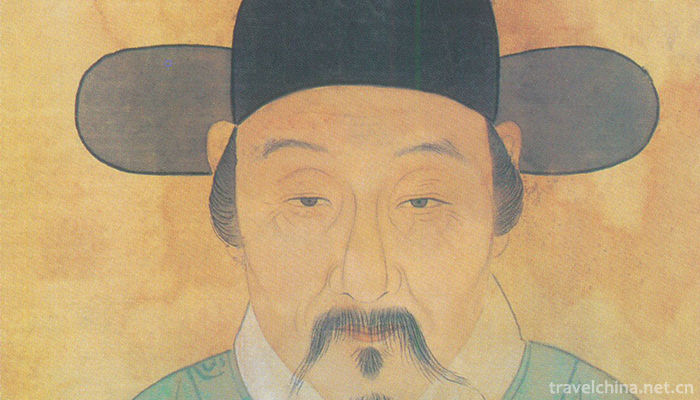
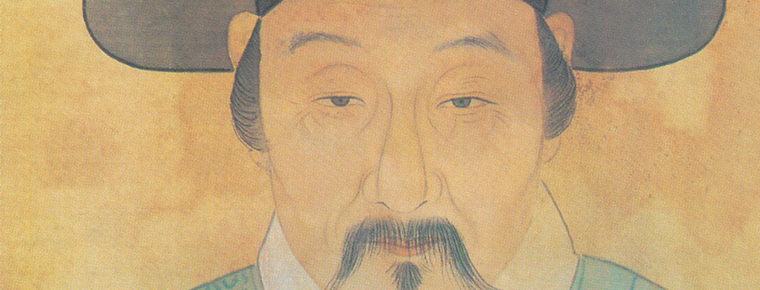
The story of Xie Jin
-
sauteed tofu in hot and spicy sauce
sauteed tofu in hot and spicy sauce is one of the traditional dishes in Sichuan
Views: 238 Time 2018-10-12 -
Baiyang Lake
Baiyang Lake/Anxin Baiyangdian Scenic Area is located in the central part of Hebei Province. Anxin Baiyangdian is the largest inland lake in Hebei Province
Views: 407 Time 2018-11-24 -
Wulian Mountain Scenic Area
Wulian Mountain Scenic Area covers a total area of 68 square kilometers and is a national AAAA-level tourist area. It is composed of Wulian Mountain and Jiuxian Mountain
Views: 200 Time 2018-12-22 -
Jiangbulak Scenic Area
Jiangbulak Scenic Area is located in the low mountain belt 58 kilometers southeast of Qitai County, Xinjiang, China. It includes wide gully scenic area and Yangwatan beach
Views: 164 Time 2019-01-21 -
Ancient Town of Yi Nationality
The ancient town of Yi people is located in the north of Yongan Avenue, the west of Sun Li Park, the east of Longchuan River and the south of Chuda Expressway in Chuxiong Economic and Technological De
Views: 220 Time 2019-03-04 -
Carrying a number
Handling trumpets is one of the trumpets of traditional folk songs. It is popular in many fields, such as manual workers, such as loading and unloading, lifting, pushing and pulling goods.
Views: 485 Time 2019-04-03 -
Wind and Fire Meteor
Fenghuo Meteor is a traditional folk performing art which combines acrobatics and martial arts. It is one of the first intangible cultural heritages in Shanxi Province.
Views: 418 Time 2019-04-29 -
Guan Suo Opera
Guansuo Opera is a kind of local opera, which belongs to the ancient Nuo Opera. It is only found in Xiaotun Village, Yangzong Town, Chengjiang County, Yunnan Province.
Views: 181 Time 2019-05-01 -
Production Techniques of Mongolian Lele Car
Lele cart is a cattle cart in Mongolian area, also known as roller cart. Its origin can be traced back to the "Yuan Yuan" recorded in Han Shu. As far back as the Qin and Han Dynasties, the H
Views: 215 Time 2019-06-03 -
Yongxiu Yaya Opera
Yongxiu Ya Opera originated in Wu Town, one of the four famous towns in Jiangxi Province. It was born in the late Ming Dynasty and Ganbei Bench Opera. Because all of its female characters were played
Views: 229 Time 2019-07-14 -
Laojunshan scenic spot in Pingshan County
Laojunshan scenic spot in Pingshan County is a provincial scenic spot approved by the people's Government of Sichuan Province. It is located on the southern edge of Sichuan Basin and is located on the arc-shaped tourism line of Chengdu Emei
Views: 175 Time 2020-10-16 -
How long does it take for Chengdu to get to the giant panda base
When you come to Chengdu, you must come and see the lovely giant panda. The nearest panda base to the city is the giant panda breeding research base. How long does it take from Chengdu to the giant panda base?
Views: 74 Time 2020-12-13




